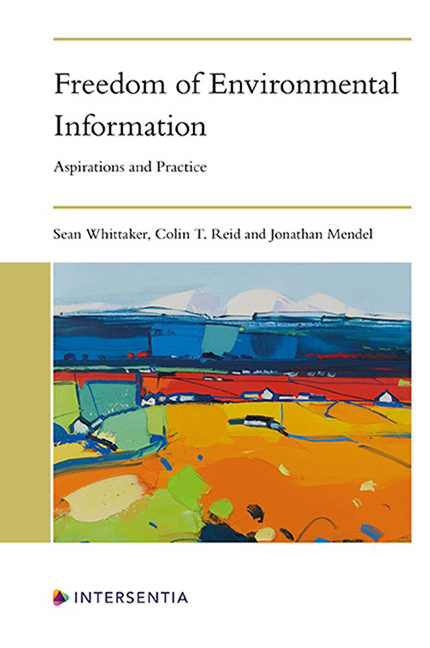Chapter 7 - Reflections and Lessons
Published online by Cambridge University Press: 15 November 2023
Summary
This book has shown that the reality of the exercise of the right of public access to environmental information is rather different from and more complicated than much of the discussion of the topic suggests. From the Rio Declaration through the Aarhus Convention to the Environmental Information (Scotland) Regulations 2004 (EI(S)R), the provision of information is seen as a means of promoting the development of environmentally engaged citizens and enabling them to participate effectively in decision-making procedures with a view to protecting and enhancing the environment. Only a few of the uses fit well with this vision and, even when they do, users are left frustrated that they are not able to exercise more influence over decision-making procedures. As such, there is a gap between the aspirations of the right and the reality of its use that needs to be considered.
The most basic point perhaps is the low level of awareness of the existence of the particular right to environmental information that is distinct from any entitlements under more general laws on freedom of information and that lies behind information being accessible. Whether or not the use of the right is recognised as such by those involved, the practice does not always match the aspirations that lie behind it. The parties involved are more diverse than can be encapsulated in a single category of “users” or “holders” of information, and their relationships are shaped by their engagement not only with each other but also with a range of non-human actors. In addition, their motivations are often very different from the environmental objectives that providing access to environmental information was designed to serve. The overall result is a system where mismatches arise as a result of different motives and expectations, leading to frustrations and getting in the way of the right always being smoothly and successfully implemented. That different actors will define success in relation to the right differently, particularly in terms of focusing on procedural or substantive outcomes of engaging with the right, adds to the complexity.
- Type
- Chapter
- Information
- Freedom of Environmental InformationAspirations and Practice, pp. 207 - 222Publisher: IntersentiaPrint publication year: 2023



